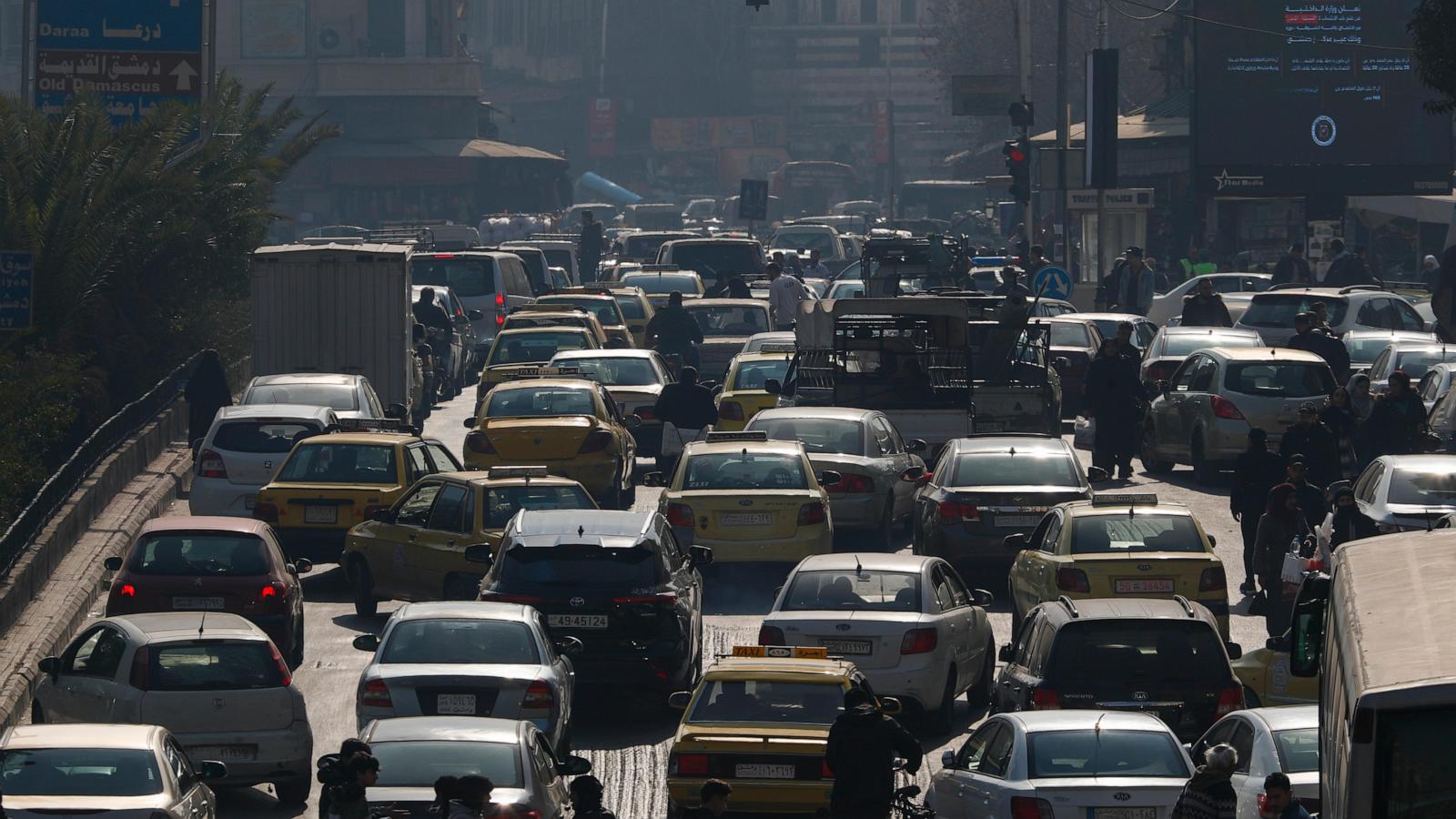Syria's Crumbling Economy: A Nation in Ruins, A People's Struggle
Syria, once a vibrant nation, now faces a devastating economic crisis. Years of civil war, coupled with crippling international sanctions and rampant corruption, have left the country in ruins. Millions struggle for survival, and the task of rebuilding seems insurmountable. This article delves into the heart-wrenching reality of Syria's economic collapse, revealing the human stories behind the statistics.
The Human Cost of Economic Collapse
Samir al-Baghdadi, a mechanic in Damascus, epitomizes the struggles of everyday Syrians. His family home, reduced to rubble during the war, is a testament to the widespread destruction. Unable to afford professional help, he painstakingly rebuilds it with his own hands, a herculean effort that highlights the desperate measures people are taking to survive. The staggering rent he must pay, meanwhile, serves as an undeniable indicator of the country's broader economic failures. Al-Baghdadi's story reflects the relentless challenge for many Syrians: simply securing enough money for basic needs. This harsh reality is far from unique and has made securing food a major challenge for millions.
Daily Survival and The Crumbling Infrastructure
For countless families, access to daily necessities such as food, clean water, and electricity is a luxury. The lack of sufficient jobs has led many to rely on remittances from abroad and humanitarian aid for bare survival. The costs associated with essential public works repairs to essential services have proved daunting, putting significant strain on the country. Without functional infrastructure and an influx of investments, the situation is unlikely to improve in the foreseeable future. This, combined with international sanctions, has almost completely crippled economic opportunity for the ordinary person.
International Sanctions and the Road to Recovery
International sanctions, intended to pressure the Syrian government, have inadvertently exacerbated the humanitarian crisis. While these restrictions aim to curtail certain activities of the Syrian government, the actual impact on the livelihoods of Syrian people cannot be ignored. While some sanctions have been recently relaxed, these small modifications are not enough to generate substantial positive changes, according to experts. The road to meaningful recovery needs a far more significant commitment from the international community. This must occur to allow for meaningful economic investment in a future where opportunities for the average person are once again a tangible reality. More assistance, including job creation opportunities for returning citizens, is sorely needed, rather than minimal improvements and half-hearted commitments that have only served to worsen the ongoing economic challenges faced by many Syrian families.
The Uncertain Future and the High Cost of Rebuilding Syria
Estimates for rebuilding Syria's devastated infrastructure reach staggering figures, potentially as high as $400 billion. This financial hurdle adds another layer to an already extremely complicated issue. This colossal amount needed is not a result of simple repair, but rather extensive and thorough overhauls to many sections of Syria's infrastructural needs. While wealthy Gulf countries have offered some economic partnerships and the U.S. has taken small, yet arguably still insufficient, steps towards easing restrictions, significant action remains needed. For the most impactful changes to occur, significantly more steps must be taken to incentivize trade between Syria and other countries. Until greater access to global markets is granted, Syria’s economy is unlikely to achieve significant self-sufficiency.
The Struggle Continues in Everyday Life
Despite the hope for a better future following recent political changes, the economic reality for many Syrians remains grim. The bustling markets in Damascus, filled with merchants, shoppers, and armed fighters, provide only a superficial display of hope. While the atmosphere may appear pleasant, beneath the celebratory surface lies an underlying feeling of desperation, for economic progress has been far slower than the recent celebrations might indicate. Those who can, must leave to pursue opportunities elsewhere, leading many to abandon what was previously their life’s work to instead look for better financial opportunity in a country where those are far more accessible.
A Glimpse into the Future and Syria's Economic Outlook
People like Abou Samir, a carpenter who works by hand due to power shortages, embodies the resilience and perseverance of ordinary Syrians in this extremely difficult period. This has occurred across a great number of industries, not only impacting the number of people in these individual sectors, but also significantly slowing economic progress across the nation as a whole. His sons' financial support and hard work reflects that this period of struggle is felt most strongly and is being addressed most dramatically within ordinary Syrian households, but unfortunately this has not and cannot sustain any significant economic recovery within Syria itself.
Take Away Points
- Syria's economy is facing a profound crisis, leaving millions struggling to survive.
- Years of civil war, international sanctions, and corruption have crippled the country.
- Rebuilding Syria will require massive investment, potentially hundreds of billions of dollars.
- The international community must play a significant role in the nation's economic recovery and progress towards a brighter, self-sustaining future for ordinary Syrians.
- Even with political transitions, fundamental change is necessary for the ongoing and deeply-felt economic struggle faced by many within Syrian society to be meaningfully addressed.









